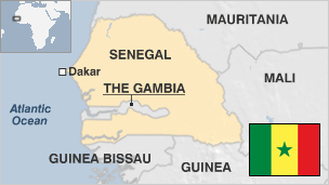
Facts and stats about Senegal
There was a successful change of leadership in Senegal in 2012. Former Prime Minister Macky Sall replaced Abdoulaye Wade as the head of the Senegalese State. This change in leadership was caused by a combination of political, economic and social crisis. This crisis together with the dispute on the constitutionality of the outgoing President’s candidacy and opposition Movement of June 23rd (M23) were the underlying causes. These were affected by youth unemployment, persistent electricity power failure, unfulfilled social demand, bad governance, and deterioration of democratic institutions.
Maitre Abdoulaye Wade was elected in 2000 with a lot of promises and prospects which were never realized. After more than one decade in office, there were certain accomplishments in terms of infrastructure in the region of Dakar. However, the massive unemployment rate increased and triggered an exodus of illegal immigrants to Europe. Furthermore, the educational system was in crisis for 10 years while the energy crisis adversely affected the economic performance of the country. According to the indicator measuring perception of corruption in a study by Transparency International, Senegal occupied the 112th place of 182 countries two years ago. The new government is trying to cope with strong social demand, employment generation, reduction of prices in prime commodities, and increase in the purchasing power. It hopes to restore the rule of law through the empowerment of institutions which can ensure fair democracy.
Senegal is a West African country of 13 million inhabitants with a wide base on the age structure. More than half (55%) of the population is below 20 years of age. It depends on the export of peanut oil and phosphates. 51% of the population rely on agriculture but it contributes only a maximum of 16 percent in terms of GDP. Many Senegalese households have no access to basic social services such as health infrastructures, tap and drinkable water as well as decent shelter.
- Agriculture 140
- Background 8
- Conflict 3
- Cost of living 47
- Crime 32
- Culture 17
- Disasters 3
- Economy 2921
- Education 408
- Energy 708
- Environment 214
- Geography 85
- Government 210
- Health 323
- Import 5
13.3 million
Population. Ranked 71st in 2013.
$1,031.60
GDP per capita. Ranked 146th in 2012.

192,530 sq km
Sq. km. Ranked 83th in 2008.